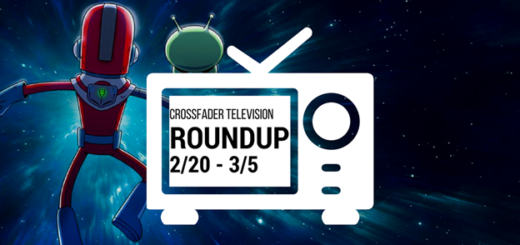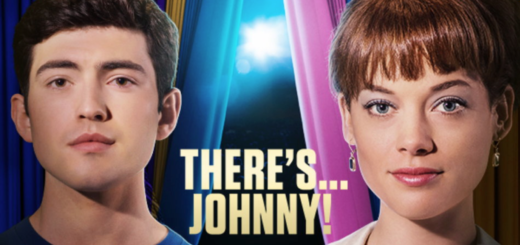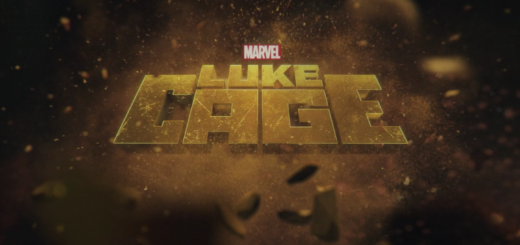BOJACK HORSEMAN Season Three Review
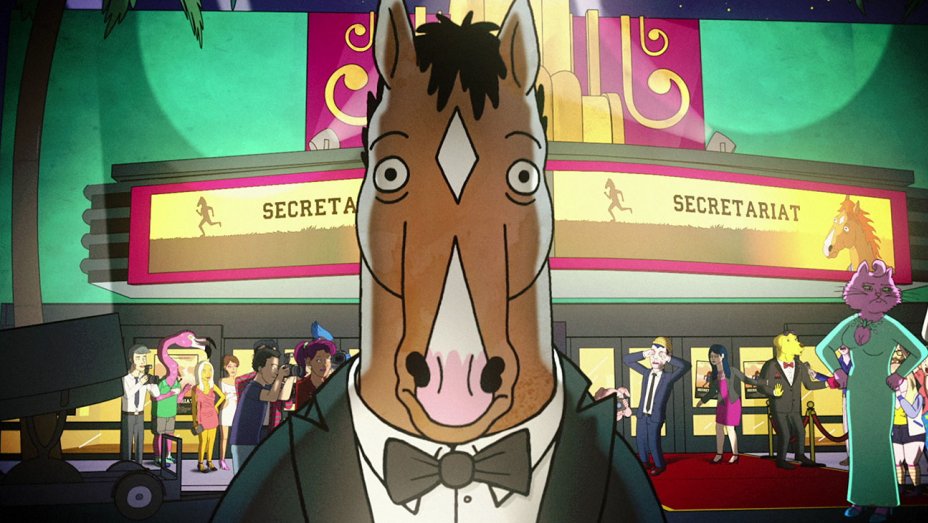
BOJACK HORSEMAN’s third season continues its noble work in distracting us from life’s awful truths with animal-based puns and sharp satire, going even deeper into our titular character’s struggle to live inside his own (and often self-induced) misery. According to its creator Raphael Bob-Waksberg, “Season one is a story about a guy realizing he needs to change, and season two is about whether or not he CAN change.” Given that, season three might be something like: “A guy who realizes that change is, like, really, really hard.”

Raphael Bob-Waksberg is a treasure
Source: Screenshot
Season two left us with a pretty dark aftertaste, BoJack fleeing L.A. and almost sleeping with his friend’s underage daughter. Season three’s darkness is largely due to the hangover from that encounter, leaving any hope of progress for BoJack back in New Mexico. BoJack’s season two girlfriend Wanda (Lisa Kudrow) is long gone, and with the finale’s actions looming over his head BoJack is quick to entangle himself in new self-destructive relationships. This season gives us more of the show’s staple gags with some new characters for BoJack to misunderstand his relationship with.
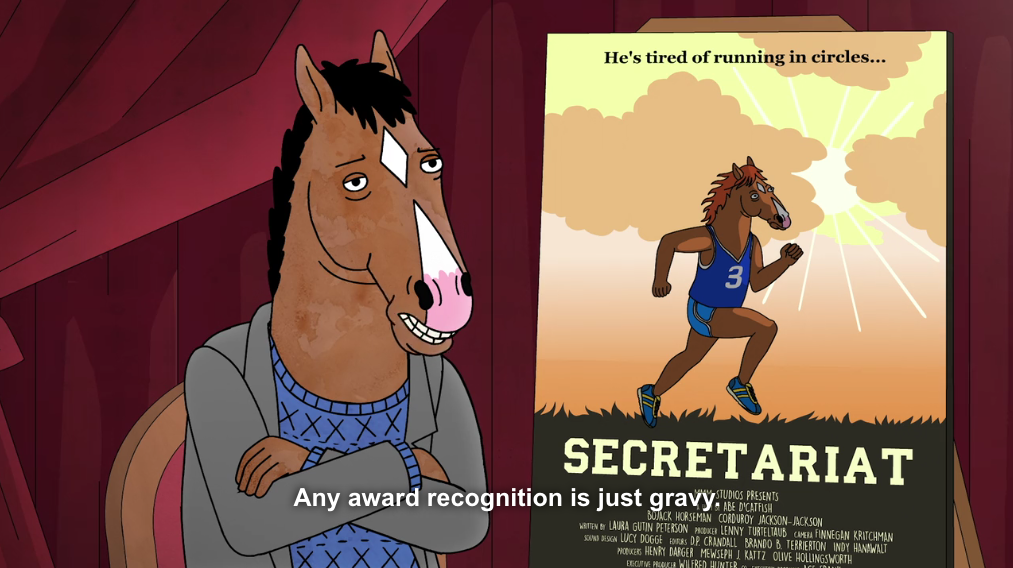
Despite winning the 2016 Critic’s Choice, there’s been zero Emmy’s gravy for Bojack Horseman
The season’s standouts are the show’s “fun with format” episodes. Episode four, for example, (“Fish Out of Water”) crafts an entire story with next to zero dialogue. Underwater for a film premiere, BoJack is left on his own without communication in an unfamiliar world with the quest of getting himself to the event on time, while reflecting on his own need to communicate with an old acquaintance. It’s also an episode that shows off the range of animation style and skill that the show has grown into since its beginning. The show’s artists (not writers) have been chiefly responsible for the show’s visual gags — a crocodile wearing Crocs, etc. — and taking away dialogue gives them a well-earned chance to shine. Episode three (“BoJack Kills”) is a murder-mystery. Episode six (“Brrap Brrap Pew Pew”) takes a stab at the abortion debate, taking a welcome approach to the characters’ decisions by way of a machine gun. The eleventh, penultimate episode of the season (“That’s too much, man!”) follows BoJack on a bender with Sarah Lynn, and his constant blackouts make the episode about two plotlines/time reversals short of a Memento tribute. In the hands of an inferior show, these structure changes might feel like filler episodes, but there’s enough story to explore that that doesn’t feel like the case. Plus, the fact that the show is about talking animals already lends itself to the ridiculous. It’s hard for anything to seem outlandish when your sentence starts with “talking horse.” The only drawback might be that the highlight episodes are so unique that at times it’s the episodes in-between that seem like filler.
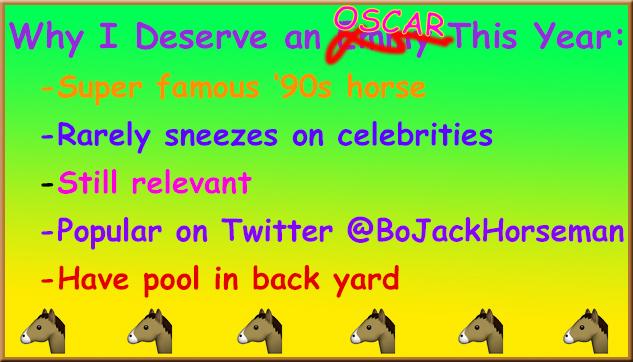
This is a real piece of marketing Netflix really made for a real website (bojackhorseman.com), and if it wasn’t also their Emmy campaign then that’s a seriously wasted opportunity
Other things to look forward to: This year’s “one ‘fuck’ per season” winner is Todd, whose outburst has been long overdue (much like Tony Hale’s VEEP outburst this year), a look into the past of BoJack and Princess Caroline, the entire awards season storyline and subsequent Oscars mockery, solving the mystery of THE SOPRANOS finale, and spaghetti strainers (naturally). The outburst capped an otherwise unremarkable season for Todd — he was given similar storylines as season’s past — but the show did at least leave him in an interesting position for season four to remedy that.
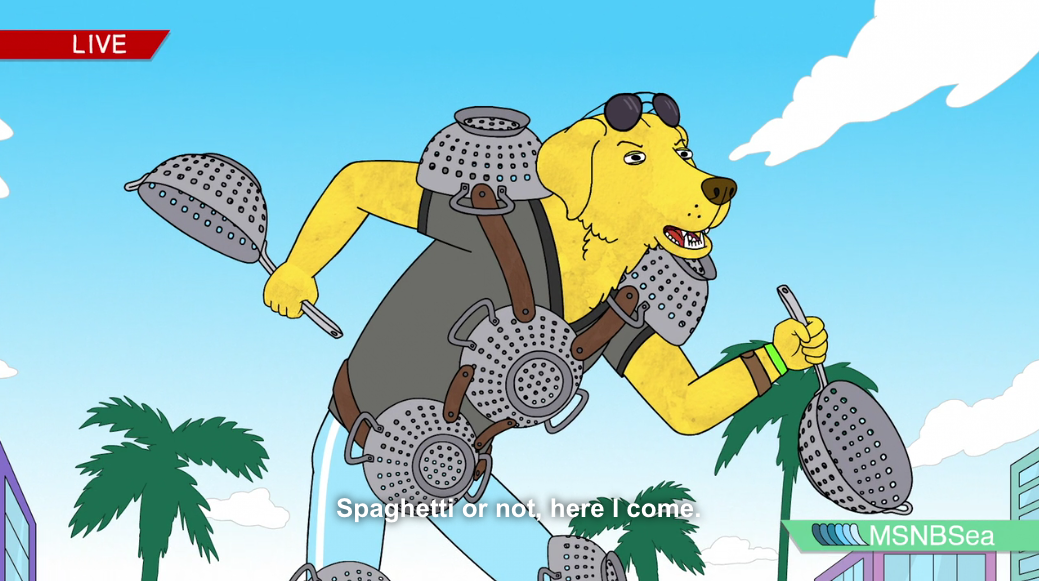
Pitching Bojack to Netflix: “Crippling social commentary, but with, like, a lot of puns.”
BoJack isn’t so much a sitcom as it is a highly serialized comedy, and the show is and has been a great example that comedies can benefit from serialization and dramatic structure. Character development doesn’t always mean a character is changing for the better, or even that they’re making progressive decisions, just that they’re changing in reaction to their surroundings like people do, you know, in real life. BoJack experiences the most pressure to change, but this season gave plenty of screentime to Princess Caroline and Diane and let them work out their own crises. Comedies of old generally worked because characters didn’t change, comedies of new are working because we’re raising the standards and it’s paying off.
Do yourselves a favor and take a deep dive into creator Raphael’s tumblr and confirm for yourself that the show is all about swimming around in the grey area trying to stay afloat. More than just exploring the grey area, he points out the problems with kidding yourself that life is anything different: “When people self-identify as ‘good,’ they believe that their actions can’t possibly be bad, because they were actions done with the best of intentions by a ‘good’ person.” It’s probably the showcasing of this philosophy that makes BoJack, as an anti-hero, more appealing to me than a Don Draper, and that allows each season of BoJack to both have a compelling arc that shows minimal progress in the race to goodness yet brings something new to the table each time.
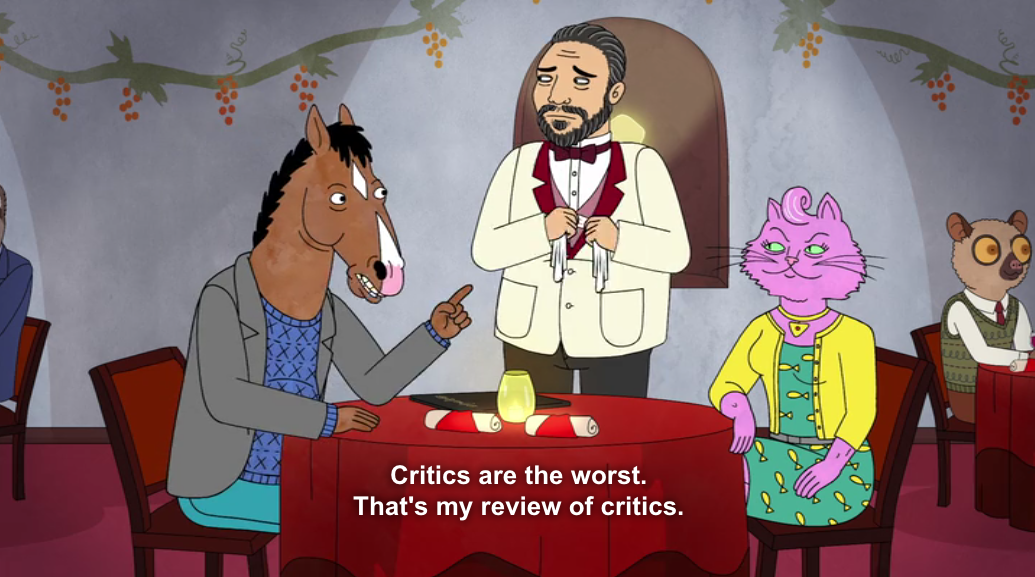
Me at Crossfader parties
While I loved this season’s darkness and development, it didn’t quite top season two for me, but the difference is one of personal preference over actual quality. I think this season’s strengths are its fun format changes, and with season four already confirmed, I look forward to seeing it playing into that strength with a little more of season two’s punchlines. It’s a comedy you can binge like a drama (or savor like a drama, whatever floats your boat), and it’s been out for a little over a week now, so put off whatever chores you’re supposed to be doing and check it out.
Verdict: Recommend
BOJACK HORSEMAN is available to watch in its entirety on Netflix

